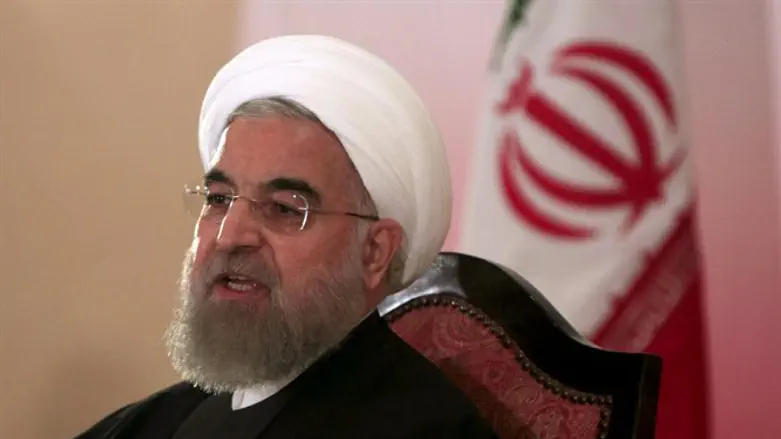
Iran’s outgoing president, Hassan Rouhani, acknowledged on Sunday that his nation at times “did not tell part of the truth” to its people during his eight-year tenure.
“What we told people was not contrary to reality, but we did not tell part of the truth to people,” Rouhani said at his last Cabinet meeting as president, according to The Associated Press. “Because I did not find it useful and I was afraid it would harm national unity.”
Rouhani did not elaborate on what he meant by his remarks. However, during his tenure, Iran’s paramilitary Revolutionary Guard mistakenly shot down a commercial airliner and killed 176 people onboard in January 2020, which the government refused for days to acknowledge until Western nations went public with their suspicions.
The outgoing president insisted he and his officials did their best.
“If we have a defect, we apologize to the people and ask them for forgiveness and mercy,” Rouhani said, according to AP.
He pointed to the country’s 2015 nuclear deal with world powers, which saw Iran agree to limit its enrichment of uranium in exchange for the lifting of economic sanctions. However, that deal now sits in tatters after then-President Donald Trump withdrew from it in May 2018.
Rouhani blamed many of Iran’s current problems on Trump’s decision, adding that while Iran had plans to upgrade its armed forces after the expiration of a UN arms embargo in October 2020, it couldn’t due to its financial woes.
“We did not have the money to buy due to sanctions and not selling oil, but the contract is completely ready,” he said.
Rouhani will be replaced on Thursday by President-elect Ebrahim Raisi, who was elected in a landslide in the recent Iranian presidential election, receiving 62% of the vote.
Rouhani, who was first elected in 2013 and reelected four years later, was ineligible to run for a third time as per Iranian law.
Despite being touted as a “moderate” reformist, Iran has set new records under Rouhani’s presidency in the number of executions, many for political or religious "crimes".
He has also done little in the way of freeing reformist political leaders who were jailed after protesting the 2009 election and in stopping the limitations on freedom of speech in Iran, despite having openly criticized it.
